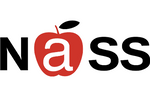Non-Speaking Communication - Jamie and Max's Experience, Part 2
In a society that is built around spoken language, those who communicate differently can be susceptible to feelings of isolation and exclusion. There are millions of people whose language goes beyond the spoken word, and it’s important to facilitate a supportive environment where they can interact with others and feel included.
Alternative forms of expression, such as the Picture Exchange Communication System (PECS), signing, and electronic devices, provide another means to share thoughts and create connections.
Jamie reflects on previous encounters where strangers have shown kindness to her non-speaking boys when they least expected it. Small gestures of support can make a big difference, and it means so much to Jamie and her children when others ‘sign’ back to them.
It fosters a connection and makes them feel welcome; it shows that people are willing to put in effort to make the world more accessible for those with differences.
She said: “The best example I've had is when my youngest son has been upset. He's been a bit in crisis and someone just came over and said, ‘Is there anything I can do to help?’
“So, as opposed to either staring at it or trying really hard not to look at it, they offered some help. A lot of the time there's nothing anyone can do and too many people around would be too much. But just acknowledge that it's happening, offer if there's anything you can do, and then carry on.”
It’s a simple action, but it can have a significant impact. Places and people can implement minor changes to make things more accessible for non-speaking individuals.
She continued: “I would love places, cafes, shops, things to have PECS, to have symbols up, even just posters so that the boys could go in and tap what they wanted. You know, they could walk into a supermarket and tap the toilet card, or they could tap chocolate buttons or, you know, things like that.”
Supermarkets have made strides towards neuro-inclusion by introducing autism-friendly hours, and adding a ‘choosing board’ could be the next step in the direction of accessibility.
“In an ideal world, people would hopefully spot their communication device, whether it be an iPad or a PECS pad, and they would just treat them as they would anyone else. Maybe simplify the language a little bit and give them a bit more time than you may give anyone else, and just be patient.”






